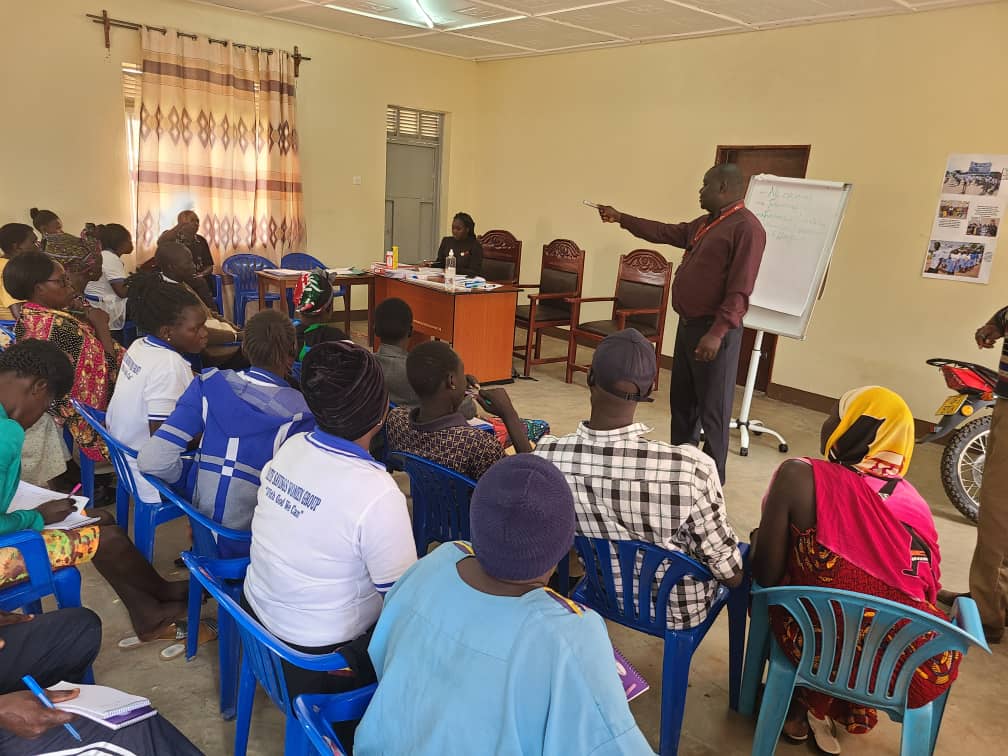Koboko Financial Literacy Training Sparks Hope for Refugees, Migrants, and Locals
In a bid to enhance community resilience through gender responsiveness and economic empowerment, a transformative financial literacy training was recently conducted in Koboko municipality. This ongoing project, is been funded by Cities Alliance and the Migration Global Programme, financed by the Swiss Agency for Development and Cooperation (SDC)
The three-year project, "Enhancing Community Resilience Through Gender Responsiveness and Economic Empowerment for Psychosocial Well-Being of Refugees, Host Communities, and Migrants," kicked off on April 1, 2023, and is set to continue until March 31, 2026, with funding from Cities Alliance through the Swiss Development Agency.
The program aims to equip participants with essential financial literacy and entrepreneurial skills, helping them achieve economic stability and improve their overall well-being.
The training focused on five vibrant Village Savings and Loan Associations (VSLA) groups, namely Peace Group, Ngunu Kata, Kugele, Morita, and Faith Women Savings Group. These groups, composed of women and youth from diverse backgrounds, including refugees, migrants, and host communities, came together to learn and grow their financial management and business skills.
Conducted by a group of dedicated facilitators, including refugees' relations officer Mr. Francis Otitivu, credit officer Daniel Odongo, Apiyo Gloria from Equity Bank, project officer Batali Gabriel Modi, and field assistant Demasia Beatrice from SSURA, the training utilized various approaches, such as presentations, lectures, and interactive question-and-answer sessions.

Equity Bank credit officer Daniel Odongo Facilitating the Financial Literacy training
Successes and Challenges:
Despite some challenges, the training proved to be a resounding success. Notable achievements included the high turnout and active engagement of participants, who were eager to gain valuable insights into business management. Furthermore, four groups successfully completed the process of filling out account opening forms for their respective VSLA groups, with 13 individual participants also opening personal accounts.
Additionally, as a key challenge raise by the participants, the lack of an Office of the Prime Minister (OPM) branch in Koboko hindered refugee groups from obtaining recommendation letters required for account opening.
Key Lessons Learned:
The training revealed interesting insights into the dynamics of VSLA groups in the community. Some groups displayed the ability to offer quick loans to non-members, while certain individuals were part of multiple groups, leading to a cycle of borrowing from one group to pay another. These lessons highlighted the importance of instituting stricter measures during group and member registrations to ensure financial sustainability and accountability.
Based on the training outcomes, the participants expressed a strong desire for continuous financial literacy and business management training. To address the challenges faced during account opening, it is recommended to establish an Equity Bank branch in Koboko and an OPM office to better serve the growing refugee population. Such actions will facilitate easier access to financial services and improve economic opportunities for all stakeholders involved.
One participant, Aisha, a 32-year-old refugee woman from the Peace group, expressed her gratitude for the training, stating, "I've learned valuable skills that will help me manage my small business effectively. I'm excited to implement what I've learned and grow my venture to support my family."
Koboko Financial Literacy Training has successfully taken a step towards empowering communities by equipping participants with essential financial and entrepreneurial knowledge. The collaboration among stakeholders and participants' dedication is a testament to the potential for positive change and growth within the community. With continued support and future initiatives, the vision of enhanced community resilience and gender-responsive economic empowerment can become a reality for refugees, migrants, and host communities alike.
Author: Aldo Adomati, -Communications Officer, SSURA


